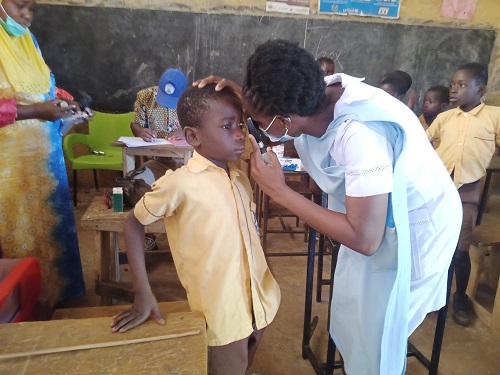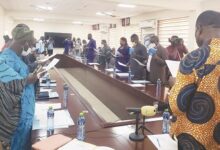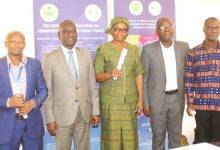
An eye screening exercise was last Friday organised for 290 school children living with visual impairment at the Tindamba Primary School in the Wa Municipality of the Upper West Region.
It was organised by the Department of Social Welfare and Community Development in conjunction with the Department of Children.
Dubbed the Holistic Development Programme for Visually Impaired Children (HODVIC), the project which is being supported by Visio International with the Ghana Health Service as another partner, seeks to screen children at schools and communities to help identify eye problems for further screening and treatment at the hospital.
The project also seeks to identify parents with visually impaired children and put them into self support groups to provide support for each other as well as receive constant training on how to handle their children and make them more independent.
Speaking to the Ghanaian Times on Friday at the screening event, the Regional Director of the Department of Children, Ms Matilda Chireh, acknowledged that children had difficulty expressing themselves even if they had issues with their sight and said some did not even show signs of impairment or other challenges until later in life.
“Some children have partial impairment but because they are not old enough, they are unable to express it, so if these issues are identified early, some of them would get treated on time before the conditions escalate,” she noted and said that was the rationale of the project.
She stated that due to stigma, some parents hid their visually impaired children away from society and said the project sought to also sensitise communities on the need to avoid stigma and ensure that such children and their care givers were not marginalised.
“Last year, we were at the Wa School for the Blind where we screened the children and realised that some of the conditions could be treated so they were sent for treatment and they are better now, others had to change their glasses to help them read without braille,” she recounted.
She urged mothers and everyone in the region whose child had impairment to visit their department to receive assistance.
The Focal Person for HODVIC, Ms Sadia Mahama, explained that the screening was to basically identify children with partial impairment and other conditions such as cataract for early treatment.
“Sometimes when you detect the condition early, it becomes easier to treat it, so aside what we are doing here, we use radio discussions as well to educate the public on stigma against children with visual impairment and also encourage parents to send their children for regular screening,” she said.
Ms Mahama said the project came with a component that allowed children identified with eye issues undergo further screening and treatment free at the Municipal Hospital.
She commended the donors for the programme and for selecting the municipality as a beneficiary and particularly for parents who were unable to send their wards to the hospital for screening due to the cost involved.
FROM LYDIA DARLINGTON FORDJOUR, WA







